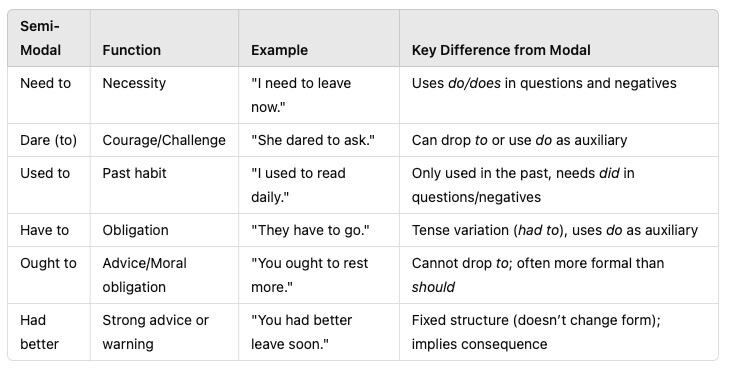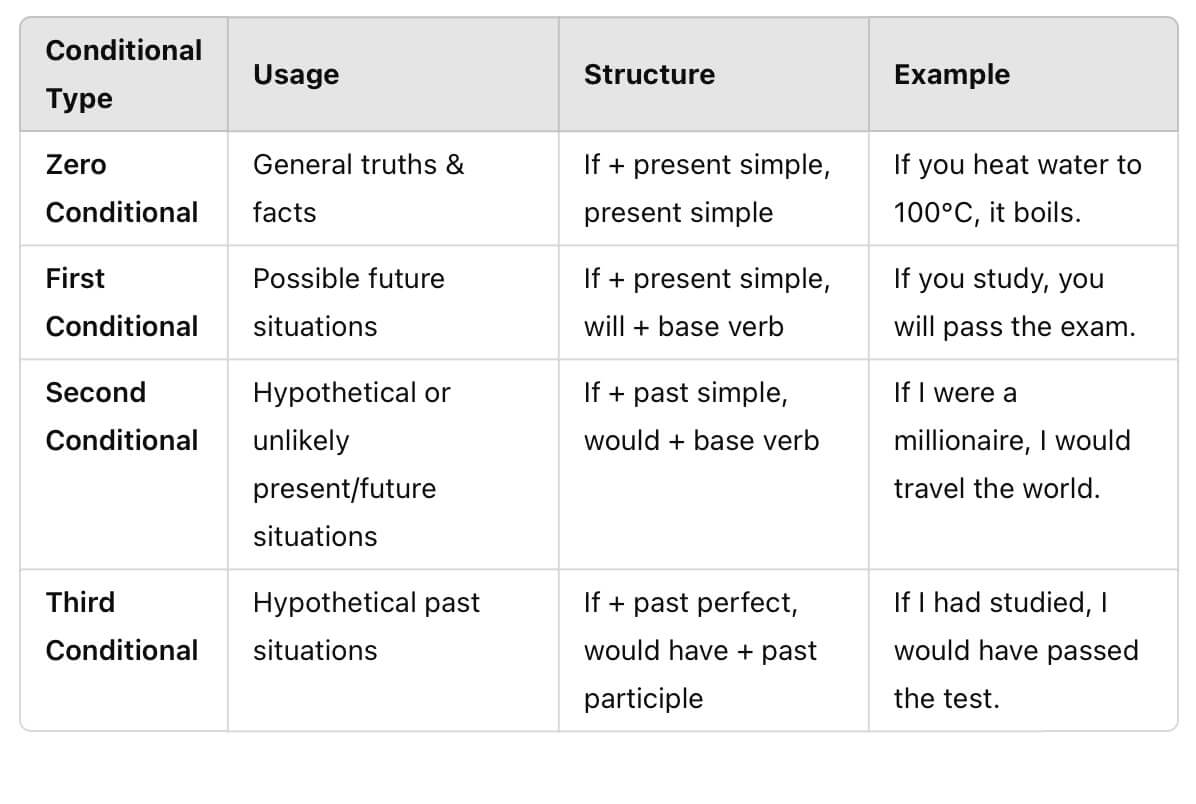- Home
- Modals in English grammar
- Modals of Ability
Modals to Express Ability
The modals to express ability are 'can,' 'could,' and 'be able to.'
Ability refers to the capacity or skill to do something. This can be general ability or a specific ability.
- By general we mean things that you can always do once you have learned (e.g. ride a bike, speak a language, swim).
- By specific we mean things specific to that moment (e.g. lifting something heavy, crossing a busy road, eating more food).
Can / Can't
Can is a modal verb used to indicate ability in the present or future, or can't for a lack of ability.
We can use it for either general or specific ability. However, for the future, it can only be used for specific ability and we create it by adding a time phrase such as 'tomorrow', 'next week' etc.
Can/Can't for General Ability (Present)
- She can swim very well.
- I can speak Spanish fluently.
- The computer can solve complex math problems.
- The machine can't operate without human intervention.
- Can you write well?
Can/Can't for Specific Ability (Present & Future)
- I can help you with that
- Can you lift that heavy box?
- We can't finish the project on time
- I'm full. I can't eat any more
- I can come to see you next week
- Can you ensure I'm fully trained by next year?
Could / Couldn't / Could Have
Could is the past tense of can and is used to express past ability, or to express a lack of past ability (couldn't). Could and couldn't can be used for general ability but only couldn't is for specific ability.
Could/Couldn't for General Ability
- He could lift heavy weights when he was younger.
- I could run faster when I was in high school.
- We couldn't count on him for help.
- She could play the piano by the age of six.
Couldn't for Specific Ability
- We couldn't make the meeting as we got stuck in traffic
- I couldn't help him lift the box yesterday as I had a bad back.
- The MPs couldn't decide who to choose as leader.
- They couldn't start the car.
- Couldn't you tell him?
We use could + have + past participle to express an ability in the past that was there but for some reason, never got fulfilled.
Examples of 'Could Have'
- She could have finished the project earlier if she had more time.
- He could have been a lawyer but he went into teaching
- They could have arrived earlier but didn't.
Be Able To
Another of the modals to express ability is be able to, or not able to/unable to for the negative.
It varies though from most other modals as although it functions as a modal in meaning, it does not have the same form as other modal verbs.
Rather than being an auxiliary verb appearing after the main verb, it is the main verb and is followed by 'to + Infinitive'. As it is a main verb, it is placed in different tenses.
In some grammar explanations, it is referred to as a phrasal verb rather than a modal verb.
Present (general and specific ability)
- I am able to solve this puzzle quickly.
- She is able to speak three languages fluently.
- We are able to meet the deadline with proper planning.
- The new software is not able to detect errors automatically.
- He is unable to handle difficult situations with calmness.
Past (specific ability)
- She was able to finish the marathon last year.
- We were able to find a solution to the problem after much discussion.
- He was able to answer all the questions in the exam.
- They were able to complete the project ahead of schedule.
- I was able to repair the computer without any external help.
Future (general and specific ability)
- He will be able to achieve his goals with determination and hard work.
- I will be able to speak French next year if I keep practising.
- By the end of the course you'll be able to start working as a childminder.
- I will be able to attend the conference next month.
- She won't be able to start her new job on Monday.
- We won't be able to visit our grandparents during the summer vacation.
For the present and future, can is more or less interchangeable with be able to though in the present, using can is more common than be able to.
Note the difference between could and was/were able to for the past. Was/were able to is for specific ability (unlike could, which is for general ability).
For instance you can't say: "She could finish the marathon last year". To make it a bit more confusing though, you can use the negative couldn't as this is also for specific abilities (see the section above on 'could')!
So you can say either of these:
- She wasn't able to finish the marathon last year.
- She couldn't finish the marathon last year.
Modals to Express Ability - Summing Up
Understanding these modals to express ability is crucial for effective communication, allowing you to convey your capacities and skills in various situations.
Learn them carefully and take your speaking to the next level!
Test yourself in this Modal Verbs of Ability Quiz >>
New! Comments
Any questions or comments about the grammar discussed on this page?
Post your comment here.









